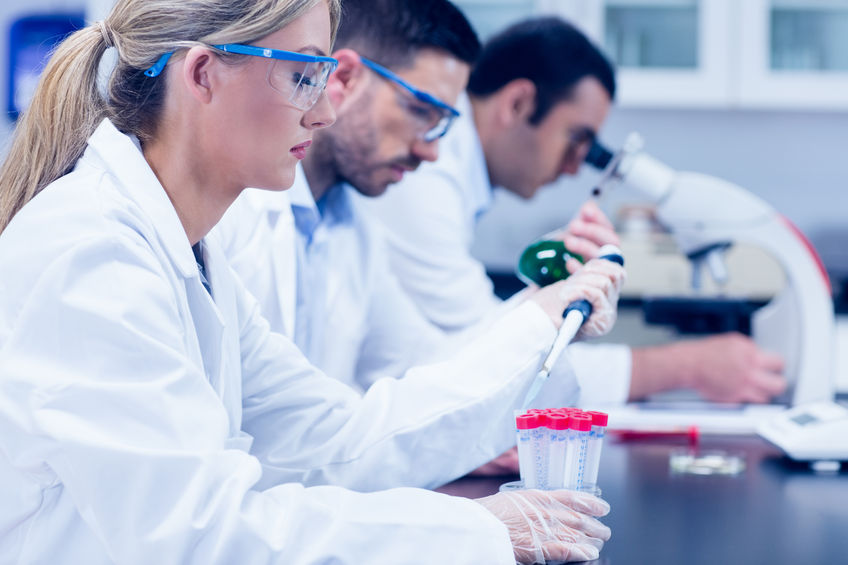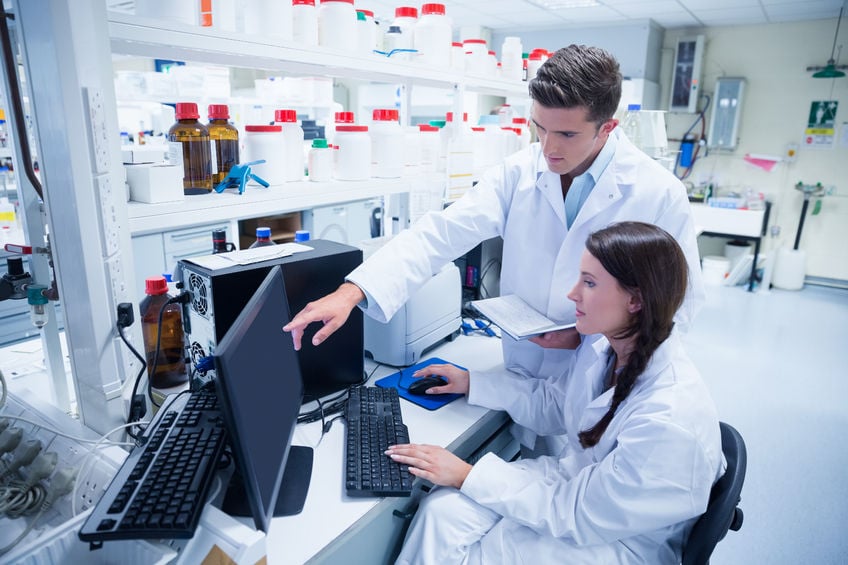With the demands of research as they are, labs often become bustling centers of activity. Ultimately, we all want to generate a substantial amount of exciting data that would further our projects and publications in a timely manner despite also having social lives and external responsibilities. Thus, one can find post-docs, students and technicians running around frantically, trying to accomplish as many things at once as possible. Unfortunately, this high productivity and frenzy also comes with it’s own set of problems, and the biggest challenges we face are the high rate of experimental failure, disagreements with our supervisor, and most often, each other due to poor lab etiquette.
What exactly is lab etiquette you ask? Generally, it is the consideration for one another in the lab. It is the consideration for your colleague’s experiment, their time and effort, realizing that these things are just as important to them as yours is to you. Or to put it another way, it is the appreciation that your experiments and careers are equally important. Specifically and depending on your scientific sub-field, the practice of lab etiquette may mean something different to everyone, but overall there are some general guidelines to follow for appropriate lab behavior.
At a material level, lab etiquette means re-ordering reagents once they have been used up or more importantly, letting people know that you are temporarily out. If you are using the last few microliters of a reagent, you may want to check with everyone to be sure that they also do not need that last bit – perhaps for a more crucial experiment than your own. It is re-aliquoting reagents after you have used the last tube, restocking supplies once they are out or handling shared reagents appropriately – i.e. thawing on ice or using filter tips to prevent the reagents from being damaged or contaminated. It is sharing key reagents instead of hoarding the good ones for yourself in your own freezer box or not stealing your colleague’s pipettes for an experiment and then not returning them. It is practicing careful cell culture habits to avoid a contamination that could spread through the incubator to your labmate’s cells and experiments.
In a more abstract form, lab etiquette is the appreciation of the importance, not only of your colleague’s experiments and project, but also their thoughts and development as a scientist. It is important to respect other people’s ideas, questions and concerns – both those that are directly scientific and those that are perhaps indirectly scientific. Good lab etiquette can be helping someone if they are learning a new protocol that you know well or helping them practice for an upcoming presentation. It is important to allow other people to speak at lab meeting or journal club, or even just to have their own views of the world or personal style. We all have our own spin on the world, our own ways of viewing a problem and ways of trying to solve it. It is this heterogeneity in how our minds work that can often make for great collaborations and great science.
Finally, good lab etiquette is just being kind to one another as people. As we go through our hectic day we compete for equipment availability, space, reagent use and sometimes the supervisor’s attention, which can easily lead to friction and frustration. Lab etiquette can even be as basic as taking a second to be polite to one another as you almost bump into each other in the hall. A little kindness will go a long way.
Consideration for one another in the lab helps everything run smoother and makes the day much easier for everyone. In addition, respecting each other as scientists and as individuals helps to create a better work environment. Not only do we need this to survive the stress and disappointment that comes with scientific research, but it also helps to produce great science.
Share this:
Tags: advice, tips, career, laboratory

Brittany Carson
I am a post doc at the Lunenfeld-Tanenbaum Institute in Toronto. I currently work on glioma, but have studied breast cancer, multiple myeloma and renal cancer, with a focus on cell-signaling pathways, translational regulation, the cell cycle and the cytoskeleton to develop novel biomarkers and therapeutic targets. My science journey has taken me through cell culture, flies, worms and mice and through many different techniques. I love photography (including microscopy), traveling and non-science reading.




